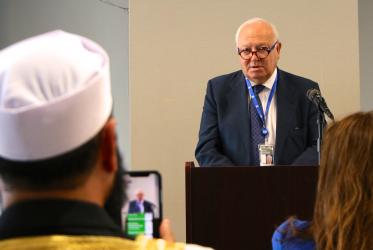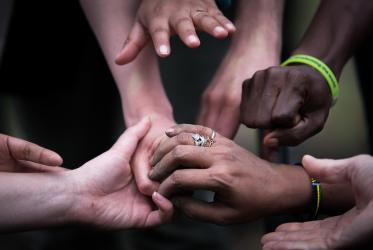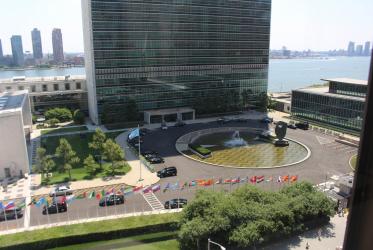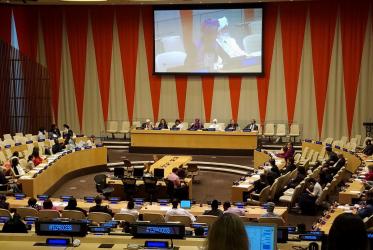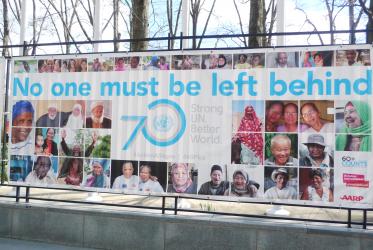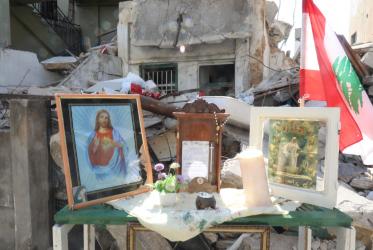Displaying 1 - 20 of 20
20 September 2019
"Diversity" documentary reflects on maze of self-identity in Canada
27 September 2018
WCC to co-host public event on migration and displacement at UN
17 January 2018
G20 summit: call to pray for peace in Hamburg
07 July 2017
Symposium focuses on religion, violence, extremism
04 February 2016
WCC/UN conference calls for coordinated action on refugee crisis
20 January 2016
WCC urges responsibility for and support to the refugees in Europe
04 September 2015
Killer Robots? Moral questions pervade UN conference
23 April 2015
Christians around the world pray for unity
22 January 2015
Indigenous faith leaders reflect on resilience and climate change
23 September 2014
